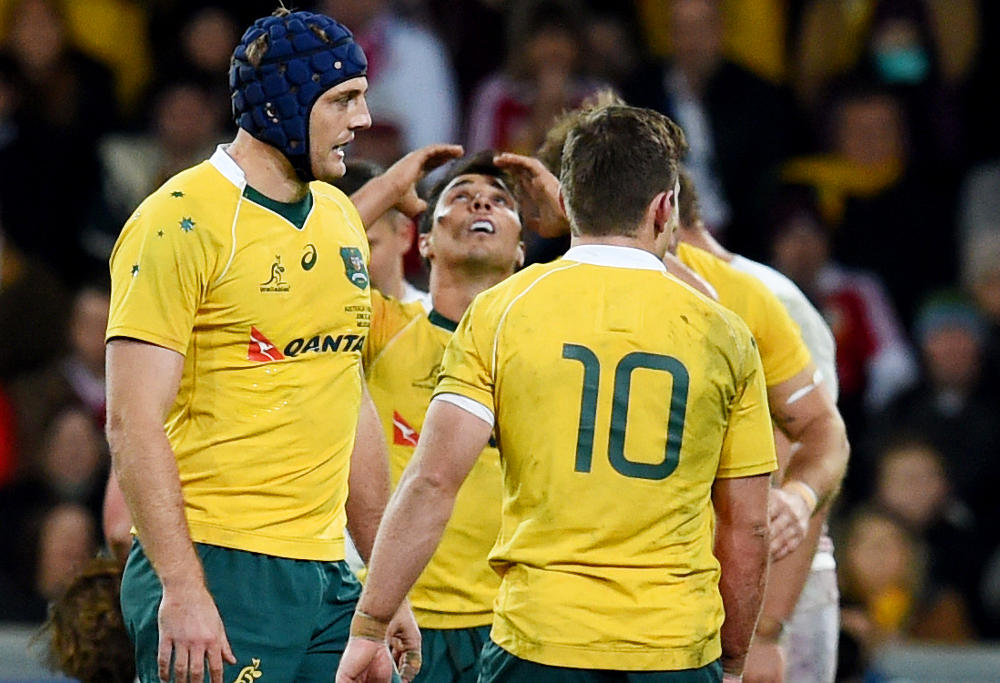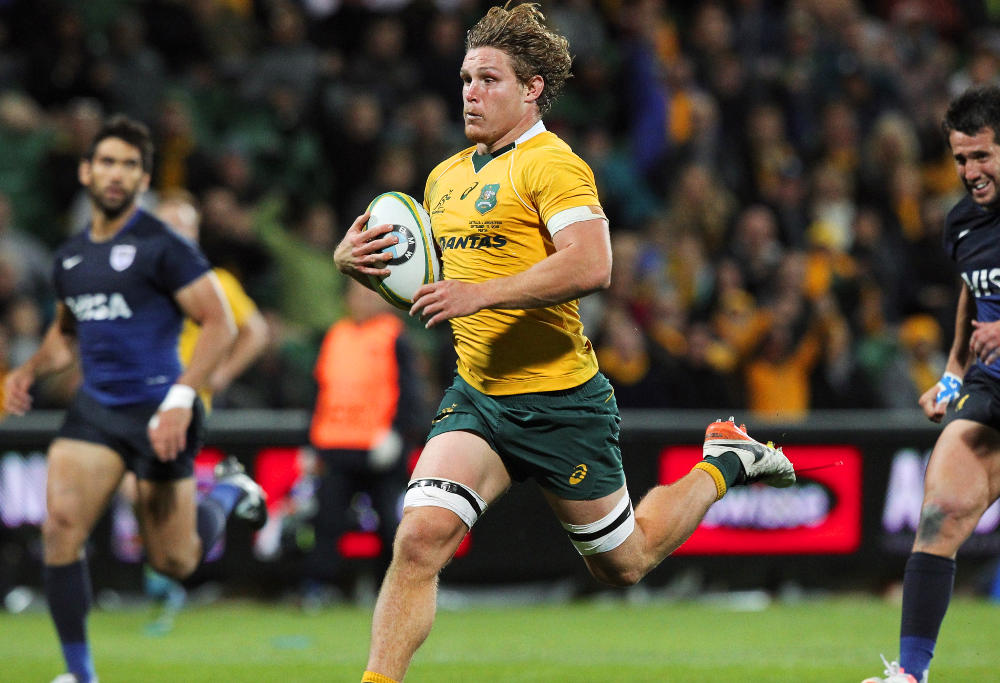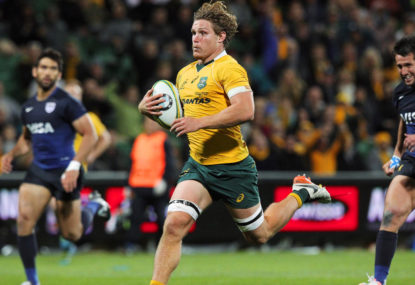Ah, the Wallabies. They giveth, and they taketh away. Often in the same match.
So it was again, for the fourth time this year, that a chronic lack of a plan B proved their great undoing in the final match of the season. A little over a week ago, a 2016 record of eight wins-seven losses looked very possible, and there’s no doubting Wallabies fans would’ve been thrilled, after the way the year started.
The sporadic signs of improvement over the back-half of the year would’ve pointed in the right direction with an eight and seven record. Though the Cook and Bledisloe Cups were long gone, the season would’ve finished in much better health than it started.
Heck, even seven wins-eight losses probably would’ve have been swallowed in time, for much the same reason.
But six and nine doesn’t quite wash, does it?
Even with seven of those nine losses coming against England and New Zealand – comfortably the best two teams in the world now – the other two came against South Africa and Ireland, teams that the Wallabies really should be beating if they have designs on the pointy end of the rankings.

What’s worse, there were opportunities to win both of those games against South Africa and Ireland, and like we’ve seen so often from this current generation of Wallabies, they didn’t have the wits of the wherewithals to close the deal.
If you weren’t somewhat expecting it by now, you’d probably be more concerned.
The issues for the Wallabies are many and varied, and probably too numerous to try and fit into one column. Which is probably good, because I have an editor wanting to me to keep writing about rugby through the summer!
One constant throughout 2016 has been that the Wallabies can make ground and create scoring opportunities against any team in the world. They can even look as sharp as any team in the world as they do it, so long as – and this is the bloody big if – they can get good quality, front-foot ball.
The other constant is that the problems have always arisen when that front-foot ball doesn’t come.
All too many times this season, the lack of front-foot ball has led to the Wallabies looking at a deficit on the scoreboard, and from there, the panic has set in.
The Wallabies are okay as front-runners, but they’re hopeless when they have to chase a game.
The major issue in this scenario is that the Wallabies’ attacking breakdown presence has been lacking all year.
It only takes one lazy forward to hit a ruck half a second too slowly to highlight this deficiency, and at times in 2016, the Wallabies have had plenty of lazy forwards on the field.
Michael Hooper had an enormous game at Twickenham – he was arguably the best Australian player on the field – but there were too many times in which he was the only Wallaby following the carrier to clean out.

Early on in the game, Hooper followed Israel Folau in support, and it was Hooper’s clean-out that actually forced the ball free for George Ford to toe the ball ahead; Dane Haylett-Petty only just beat Marlon Yarde to force the ball in-goal.
But where are the other supporting forwards? Where were the trailing forwards to hit the ruck and at least keep the loose ball in Australian hands? And why was Hooper Folau’s only support?
This is compounded by a lack of go-forward, which until the inclusion of Adam Coleman and Lopeti Timani in the starting XV in the latter part of the year, has become an endemic issue.
Teams know that if you can knuckle down in defence and restrict the Wallabies’ ability to make ground, the risks will increase, the mistakes will come, and there will be scoring opportunities a-plenty.
There’s no doubt England won this game because they were the better team, but they were the better team because they could play according to their game plan for longer.
Despite a surprisingly lacklustre first half an hour, Eddie Jones would’ve drummed into his team all week that they only needed to get themselves into the lead to put the Wallabies under pressure.
And how did he know this? Because that’s exactly what they did for three weeks this year back in June.
Establish a lead, fall back into the default defence and breakdown dominance, and wait to capitalise on the inevitable Australian mistakes.
Hooper and David Pocock did their best, but the Wallabies’ back five forwards were clearly outpointed by their opposite numbers.
So while it’s true that the Wallabies have shown some very good signs of improvement in some aspects of their game, until they can overcome this complete inability to remain composed when behind on the scoreboard, nothing will change.
In the long run, maybe the Wallabies will learn this latest lesson handed down by England, but given that nothing was learnt from three consecutive lessons handed out back in June, I’m not holding my breath just yet.































































































